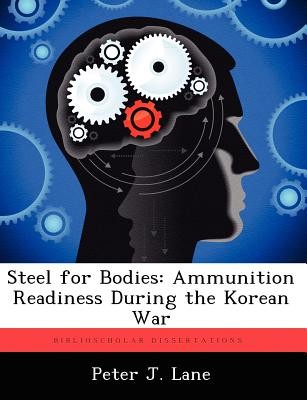
- We will send in 10–14 business days.
- Author: Peter J Lane
- Publisher: BiblioScholar
- ISBN-10: 1249270103
- ISBN-13: 9781249270102
- Format: 18.9 x 24.6 x 0.6 cm, minkšti viršeliai
- Language: English
- SAVE -10% with code: EXTRA
Reviews
Description
A nation's ability to wage war is largely shaped by the preparations that it has undertaken in the period since the last war it has waged. The policies that support preparation for the next war are often forced to compete for resources against other domestic programs. Deficiencies in the U.S. Army's ammunition readiness during the Korean War are illustrative of the many challenges faced in resourcing readiness in the face of competing domestic and military priorities .
The U.S. Army's readiness for battle at the beginning of the Cold War was closely linked to reliance on a strategy of mobilization, which proved itself ill suited to respond to the needs of the nation's strategy to contain the growth of Communism. Military leaders struggled to develop a joint strategy to meet the Soviet threat, and to secure presidential support to resource a military establishment that was ready and capable of fighting the next war. Securing presidential support for increased funding was complicated by divisions between military services exacerbated by the National Security Act of 1947, different perceptions of the nature of the Soviet threat, and domestic political pressures to limit defense spending.
EXTRA 10 % discount with code: EXTRA
The promotion ends in 23d.06:07:05
The discount code is valid when purchasing from 10 €. Discounts do not stack.
- Author: Peter J Lane
- Publisher: BiblioScholar
- ISBN-10: 1249270103
- ISBN-13: 9781249270102
- Format: 18.9 x 24.6 x 0.6 cm, minkšti viršeliai
- Language: English English
A nation's ability to wage war is largely shaped by the preparations that it has undertaken in the period since the last war it has waged. The policies that support preparation for the next war are often forced to compete for resources against other domestic programs. Deficiencies in the U.S. Army's ammunition readiness during the Korean War are illustrative of the many challenges faced in resourcing readiness in the face of competing domestic and military priorities .
The U.S. Army's readiness for battle at the beginning of the Cold War was closely linked to reliance on a strategy of mobilization, which proved itself ill suited to respond to the needs of the nation's strategy to contain the growth of Communism. Military leaders struggled to develop a joint strategy to meet the Soviet threat, and to secure presidential support to resource a military establishment that was ready and capable of fighting the next war. Securing presidential support for increased funding was complicated by divisions between military services exacerbated by the National Security Act of 1947, different perceptions of the nature of the Soviet threat, and domestic political pressures to limit defense spending.


Reviews